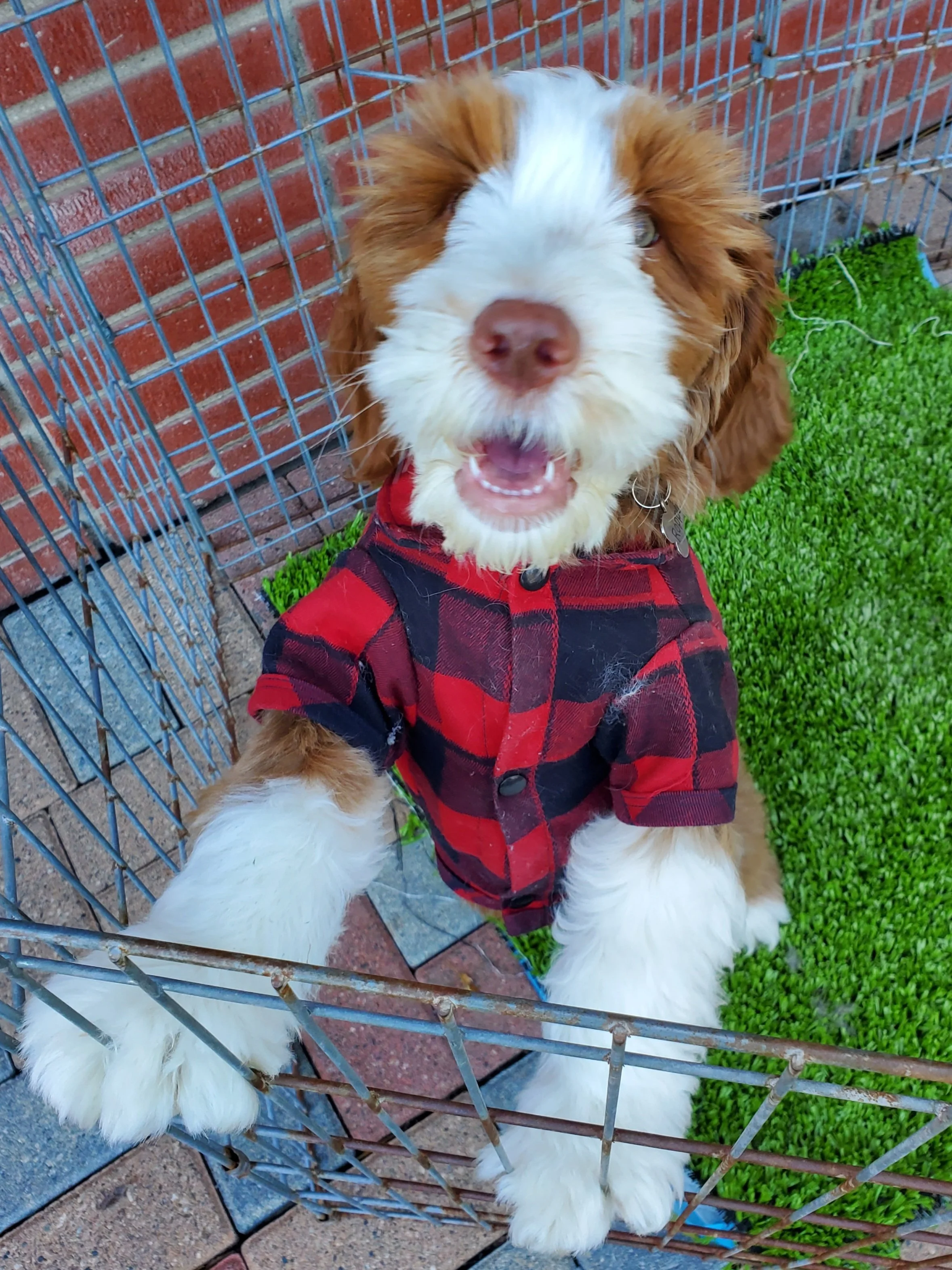How To Potty Train Your Puppy
Bringing home a new puppy is truly a unique joy. As puppy settles in to their new home, one of the first things you'll want to teach them is where to go potty. For many new dog parents, the idea of potty training and cleaning up accidents feels overwhelming. Fortunately, potty training can be simple with the right potty schedule and management techniques to set your pup up for success. With a little patience and consistency, your puppy will learn confidence and healthy boundaries around the house.
When starting to train your puppy, remember that they are brand new to the world and you get to teach them how to navigate it! Plan for frequent potty breaks and make it very rewarding for them to go potty in the right place, rather than punishing them for going in the wrong spots. Whether you're potty training on pee pads, grass patches such as Fresh Patch, or in your yard, be sure to have high-value treats available to reward your puppy for going potty where you would like them to. Remember that there is no "good" or "bad" behavior here, simply a learning process. When puppy pees or poops in the designated potty area, throw them a huge potty party as soon as they finish by showering them with praise and high-value treats! The happier you are, the more your puppy will want to repeat the behavior.
While you're working on potty training, you'll want to supervise puppy closely to prevent accidents (as well as making sure puppy doesn't get into anything they're not supposed to!). Use a pen, tether, or baby gates to keep your puppy within sight and out of trouble. Make sure to have a properly sized crate for when you leave or cannot actively watch your puppy. A crate should be just big enough for your puppy to sit, lie down, and turn around comfortably, but not so big that they can use one side as a potty area. Many crates come with dividers that you can adjust as puppy grows. Feeding your puppy in the crate will help to establish it as a living space, not a potty space, as well as building a positive association with going into the crate. Typically, puppies can hold their bladder for one hour for every month of age – for example, a three month old puppy can hold it for about three hours, so make sure you're taking your puppy out to potty within that span of time, ideally sooner than they'll need to go. If your puppy doesn't pee or poop during their potty break, put them back in the crate or pen and try again in 15 minutes. Supervision and consistency will reduce the chance of your puppy having an accident inside the house.
If you do catch your puppy having an accident outside of the potty area, try to interrupt by making a noise such as clapping your hands. The goal is not to startle your puppy, but to get their attention. If they stop, pick them up and carry them to the potty area to finish. Reward once they've finished eliminating in the potty area. If you're unable to interrupt, never pick up your puppy while they're going to the bathroom! Once they finish, calmly put them out of sight in their crate or pen while you clean up the mess. Be sure to use an enzyme cleaner according to the instructions on the bottle (we recommend Rocco & Roxie's Stain & Odor Eliminator or Nature's Miracle).
Sticking to a schedule will help your puppy establish a routine and learn when it is time to go potty. During WuFF Dog Training's puppy sessions, we help you create a potty schedule that works with your lifestyle. We also include scheduled meal times, nap times, and crate/pen time. Along with potty training, we provide a kind, holistic approach to raising a puppy, including socialization tips, shopping lists, and an introduction to essential basic obedience cues using positive reinforcement.
If you need help potty training your puppy in the Los Angeles area, click here to view the training services we offer, or book a free 15-minute phone consultation here.

